
Xi Jinping’s Dream of a Chinese Military-Industrial Complex
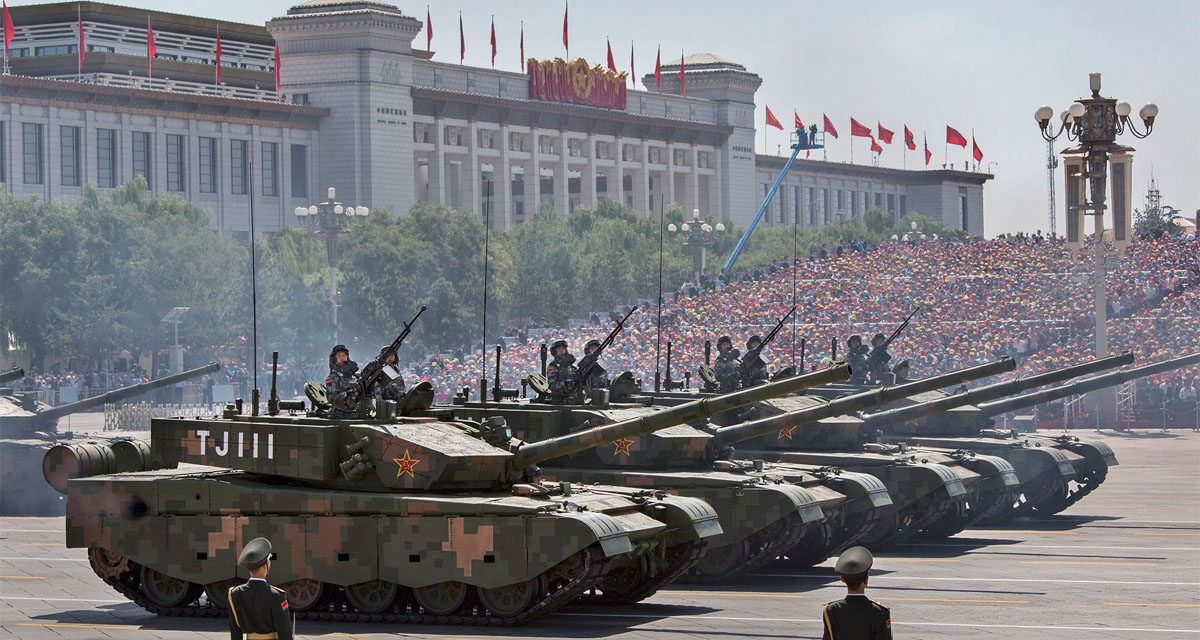
When the Chinese Communist Party leadership gathered in Beijing for its quinquennial congress last October, the media spotlight was firmly on President Xi Jinping securing a precedent-shattering third term as China’s unchallenged leader. However, overlooked by many at the time was the rise of a new group of political leaders in the top echelons of power whose background diverges from the usual careers in provincial government or Communist Party administration. Instead, they all have deep experience in China’s military-industrial complex.
Their swift advancement is part of Xi’s efforts to reinvigorate China’s long-running project of “military-civil fusion,” a policy that seeks to harness new technologies from the private sector for the benefit of the country’s rapidly modernizing military.
More than a third of the Communist Party’s 205-member Central Committee now have a background in science, technology, engineering, and mathematics, according to a report by MacroPolo, a think-tank of the Paulson Institute in Chicago. That is a 35 percent increase from the previous committee appointed five years before.
Xi’s belief in the successful combination of party-state control and private sector activities in China’s military-industrial sector is highlighted by the unprecedented promotion of individuals with military-industrial engineering backgrounds in Chinese politics. This rapid rise of technocrats with expertise in defense and technology is spectacular, even in comparison with the general trend of a rising class of technocrats in the post-Mao era.
The implications of this development could be profound, as China’s potential adversaries in the West, already alarmed by the expansion of Chinese military capabilities, fear that the pace and breadth of military technology breakthroughs will accelerate. Xi’s recent appearance in front of leaders of the People’s Liberation Army, dressed in a dark green Mao suit, emphasized the need for China’s self-reliance and collaborative innovation in science and technology to establish its dominance on the world stage.
However, despite China’s immense control over its private enterprises and the presence of state-owned enterprises and universities conducting defense-focused research and development, the country’s defense industry remains poorly operated and has largely failed to reform. The military has been slow to adapt to private sector forces, and defense sector state-owned enterprises struggle to strike a balance between making money and supporting policy goals.
China’s military-civil fusion policy has faced challenges in integrating private sector technology and innovation with the military. The military has shown a lack of trust in private groups, which has narrowed the scope of what the private sector can offer. Conflicting laws and regulations, legal risks, and concerns about intellectual property rights further complicate cooperation between the private sector and the military.
The US government sees China’s military-civil fusion policy as a strategy to develop the most cutting-edge military in the world by acquiring and diverting advanced technologies, including through theft. The US defense community has expressed concerns that Chinese companies are obtaining overseas technologies and expertise that can later be used by the military. The US has imposed export controls and sanctions to counter this perceived technology transfer.
Xi’s personal leadership and increased spending in the military-civil fusion policy reflect a significant shift in China’s approach to address its security concerns. The policy is expanding into various domains of competition, including cyber, finance, space, and maritime sectors. Political support and funding have been provided to firms involved in military-civil fusion projects, resulting in the establishment of numerous demonstration bases and institutions dedicated to military-focused research and development.
China’s improved technology has positioned its defense companies to ramp up weapons exports and fill the void left by Russia and Ukraine in certain developing countries. Beijing’s focus on national security is understandable given rising military tensions with the US, but there are differing views on how Xi balances security with other domestic concerns.
While Beijing believes that domestic development of technology and a strong military-industrial complex are essential for its national security and global influence, critics argue that the focus on military-civil fusion may divert resources and attention away from pressing domestic issues such as economic inequality, social welfare, and environmental sustainability.
Xi Jinping’s dream of a Chinese military-industrial complex is a key component of his broader vision for China’s rise as a global superpower. By promoting technocrats with military-industrial expertise and implementing the military-civil fusion policy, China aims to harness private sector innovation and technology to bolster its military capabilities. However, challenges remain in effectively integrating the private sector with the military and addressing concerns about technology transfer and intellectual property rights. The implications of China’s military modernization efforts and its growing defense industry are closely watched by its adversaries and have far-reaching geopolitical implications.





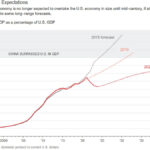





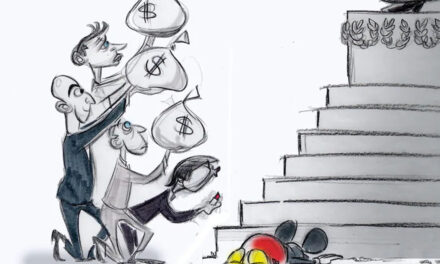
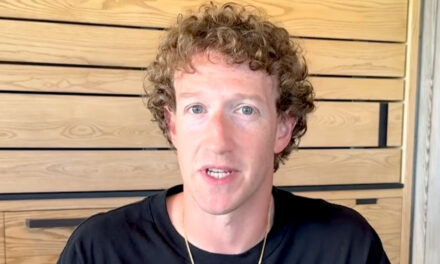


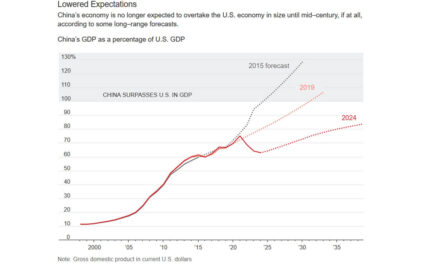
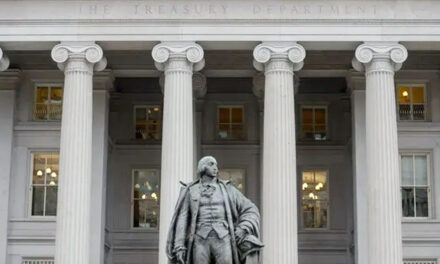






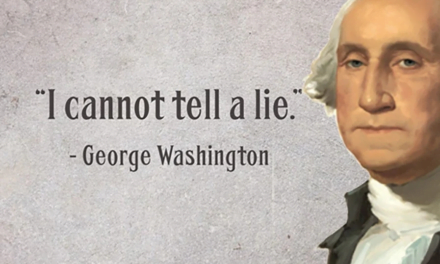

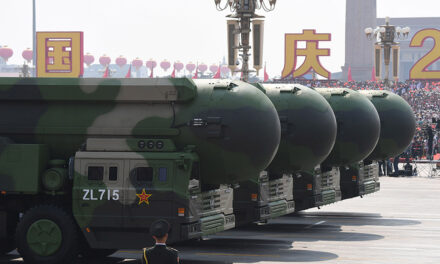
This is one of the areas where national debt hurts us the most. We pay $300+ B dollars in interest payment per quarter. Imagine if we could invest some of that in weapons development and some in social programs. Paying down the national debt is the only way to Make America Great Again! We cannot stop Xi. But we can economically de-escalate our purchases of Chinese goods. We can bring some production home and incentivize other countries like we did China. We can match weapons development. We can provide smaller countries a better idea, vision, and way. But we cannot do anything with a congress more concerned about vote getting and infighting than world security.
The China military does not matter. We are too far ahead to worry much. We own the sky, the seas, and are superior own the ground. They own “most improved” status and not much more. Especially experience. The fact they are loading their government with science, medicine, and technology should be a sign post as we load ours with AOC and the squad, Greene and the Freedom Caucus, and the like. It’s not what the Chinese are doing that should frighten us, it should be what we are doing that should be a sign post that frightens us.
Tom, haven’t I taught you the prime directive on all things: wherever you are in the economy, you have never been here before with my routine answer to all questions: it depends?
First, I think the national debt payment for 2023 will be about $663B, according to CBO, making your $300B a Q about double that.
Second, the amounts always look huge, it’s the nature of sovereign finances. While I believe the debt is too high, based on spending too much, but more important, not getting enough profit back. Like I have said, I don’t not measure on total amounts, but instread use ratio’s targeting how much a nation can afford to borrow, which even it available, requires one to also ask the most important question: WIFM —- what’s in it for me. What profit do you get back on your investment?
In this case, I use the debt/gdp ratio which is currently over 100% which is like saying you make 100K every year and owe 100K. Now, for homeowner, that’s not only light, but based on a 35-year mortgage, In sovereign finance, 100% debt/gdp is considered a tipping point where people may quickly decide to divest US treasury funds and invest elsewhere —– and that is the big threat. So, the stats tell us we are in dangerous territory, have not been here since WWII, and the end may be any day now, the truth is we really don’t know. Where we are in the economy is a place we have never been before and for some reason, people are still buying treasuries. BUT the fact we owe more than ever, more than in our history, and have seen many a culture toppled by the same, well, that’s good enough for me to say: “stop the boat, we need a bigger boat….”
BUT— remember — it’s not the loan amount, but what did you get for it? If they are holding our debt, what is our debt buying us? Because while we pay debt service to those amounts, our current debt interest rate is about 2.5% on existing debt with new debt adding rates of 4-4.5% interest. IOW —- the debt we currently have requires only a 2.5% cost which I think is a great deal. Future debt is much worse so yet another reason to put the breaks on the debt-based spending unless almost twice as profitable as current debt which is pretty improbable that we are investing that much better, or even better at all.
It’s more complex than I can handle, but I don’t get hung up on the values. Instead, I look to the ratio’s like the one Larry’s economist and town tax collector, just kidding, uses —- his is a supply-side ratio that’s an interesting indicator too.
Now, back to China but linking our debt. First, the US holds 70% of it’s own debt, foreign holds 30% of which 50-75% is bank-owned and 25-50% is private foreign investors. China and Japan hold the most, about 50% in 2004 dropping to 25% in 2022 which China’s percentage getting smaller, and Japan’s larger. China has trimmed almost a trillion off since 2013, dropping close to 50% of it’s treasuries. Japan has grown it’s ownership to be about 50% higher than China’s. Over the years, foreign investment has been close to 50%. Today it’s 30%. However, that drop has The Great Recession and The Pandemic Wars rolled in where the Fed bought up a lot of stuff to keep the economy rolling. But a declining foreign investment may be, and should be the greater concern for us than what interest payments we are making to China.
Like I said, if they decide to pull investments, it can bring it all down with no way for us to correct. That’s the ultimate monitor —- not what they invest, but when the start dropping the investment….
Frank, I think there is plenty to worry about . China recently launched a hypersonic missile around the world and landed it 18 miles from target. They have more ships but our ships are more tonnage, they can not go blue water like we can but that will change in ten years. Their airforce has made great gains in the past 10 years. Their army is ten times the size of ours. Cuba now has a Chinese base on it. They are leading us in soft power but losing that advantage.
Yes, the feuding by both sides is rediculous at a time when we need to be unified. That is why I am an independent.
Your statement proves my point about paying off national debt when you say, “100% debt/gdp is considered a tipping point where people may quickly decide to divest US treasury funds and invest elsewhere —– and that is the big threat.” I AGREE!!!!
Personally, I think the numbers are very funny. According to CNN, The Treasury Department paid a record $213 billion in interest payments on the national debt in the last quarter of 2022, up $63 billion from the same period a year earlier. And then the T Dept. predicts another 35% rise for 2023 which would put this $213B 2022 figure up to pretty close to $300B. I begin to wonder if anyone really knows the true story. Yes most figures say this year will be around $645B, but I think this is low. Either way, that is a shitload of money!!! My point is how much better off we would be if we just payed this debt off.
As for what we get for all of this debt, I have no freaken idea. I know we get faster missiles, more fuel for navy ships, cool new airplanes and lot of pork! We should rename ourselves the United States of Pork!
So if we need to stop the boat and do something, why do liberals want more programs and do things that cost more money? I do not get it? And yes, I know Trump was horrible for national debt.
Yes I agree, it is worrisome if foreign investors pull their investment and cash in. China has reduced buying treasuries but has increased buying land and buildings close to military bases, and has purchased much land for pig farms to satisfy its national demand for pork. In this respect, Larry’s economist was spot on. China views our debt as not being as stable as it used to be so it is buying stuff that increases its wealth while minimizing its exposure to US financial whims.